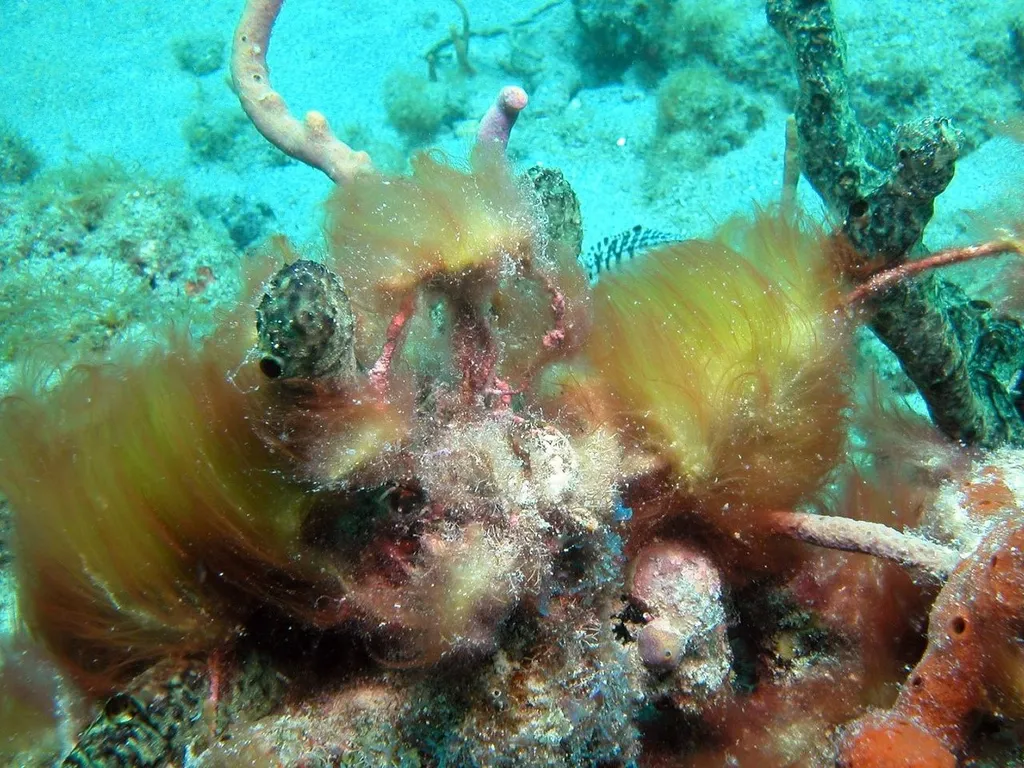In a groundbreaking study published in *Scientific Reports*, researchers have uncovered the potential of two marine algae species, *Sargassum aquifolium* and *Galaxaura rugosa*, to combat cancer and viral infections, including SARS-CoV-2. The research, led by Asmaa S. Abd Elsamiae from the Pharmacognosy Department at the National Research Center, delves into the phytochemical and biological properties of these algae, offering promising avenues for the agriculture and pharmaceutical sectors.
The study identified a rich array of compounds in both species. *Sargassum aquifolium* contained 27 compounds, including three phytosterols and two fatty alcohols, while *Galaxaura rugosa* had 23 compounds. Fatty acid profiling revealed six fatty acids in *S. aquifolium* and 21 in *G. rugosa*. Notably, the pet. ether extract of *S. aquifolium* exhibited the highest antioxidant activity, while the same extract from *G. rugosa* showed potent antiviral activity against SARS-CoV-2, with an IC₅₀ value of 6.454 µg/mL.
“These findings are significant because they highlight the potential of marine algae as a source of bioactive compounds that can be developed into therapeutic agents,” said Asmaa S. Abd Elsamiae. The study also found that the aqueous and pigment extracts of *S. aquifolium* showed significant cytotoxicity against lung cancer cells, with inhibition rates of 70% and 62.56%, respectively. Additionally, aqueous extracts of both species exhibited strong activity against colon cancer cells, with inhibition rates of 76.02% and 61.17% for *S. aquifolium* and *G. rugosa*, respectively.
Molecular docking studies identified phytol as a potential bioactive compound contributing to these therapeutic effects. This research could pave the way for the development of new drugs and treatments derived from marine algae, offering a sustainable and renewable source of bioactive compounds.
The commercial implications for the agriculture sector are substantial. Marine algae cultivation could become a lucrative industry, providing a sustainable source of bioactive compounds for pharmaceutical applications. This could lead to the development of new agricultural practices focused on algae farming, creating jobs and stimulating economic growth in coastal regions.
Furthermore, the study’s findings could drive innovation in the agricultural biotechnology sector. Researchers and companies may invest more in exploring the potential of marine algae for developing new crops with enhanced nutritional and medicinal properties. This could lead to the creation of new agricultural products that cater to the growing demand for natural and sustainable health solutions.
In conclusion, this research offers a glimpse into the vast potential of marine algae as a source of bioactive compounds with significant therapeutic applications. As the world continues to search for sustainable and effective solutions to health challenges, marine algae could play a pivotal role in shaping the future of medicine and agriculture. The study, published in *Scientific Reports* and led by Asmaa S. Abd Elsamiae from the Pharmacognosy Department at the National Research Center, underscores the importance of continued research in this field.

